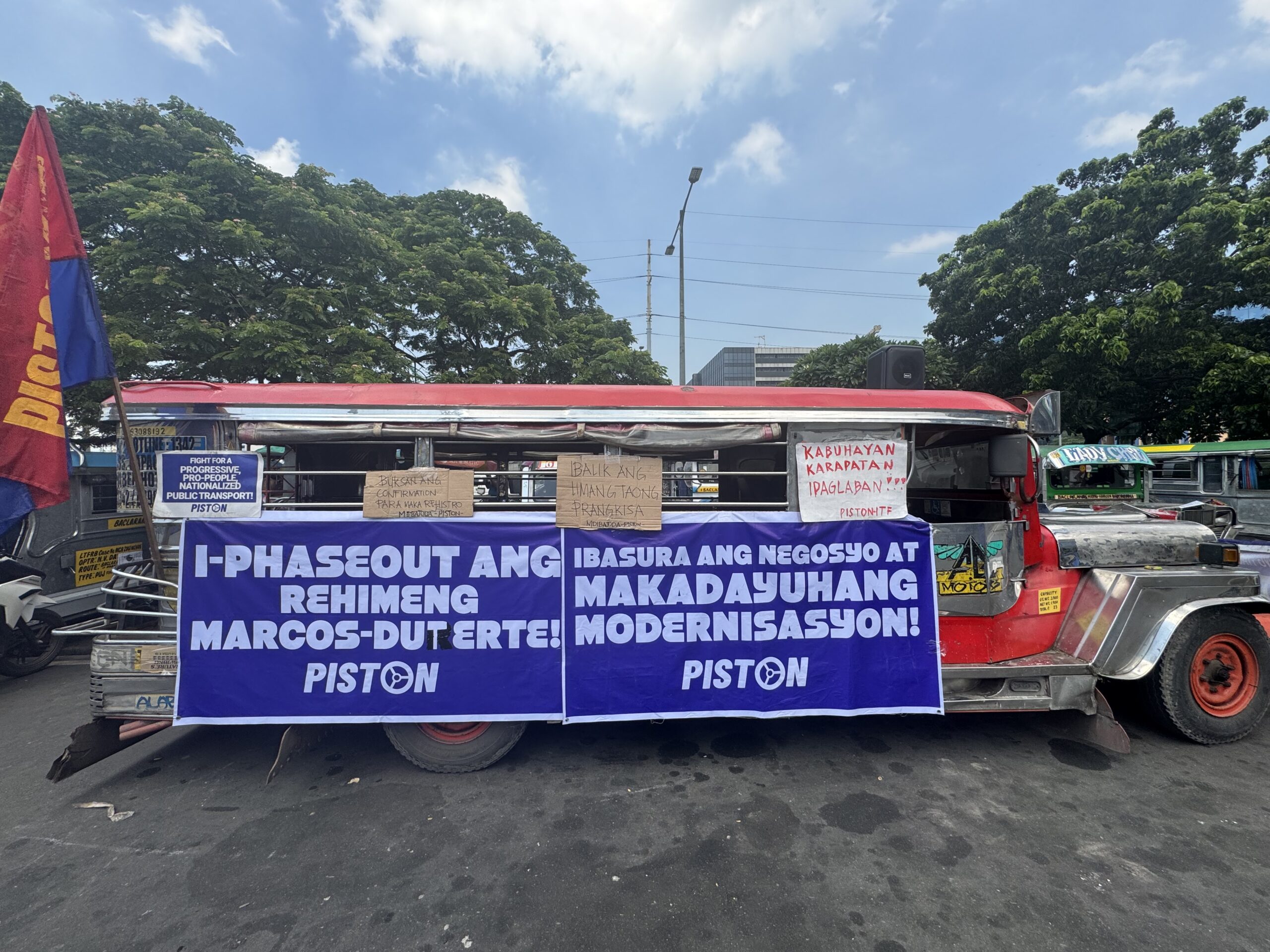
As the global labor movement observes World Day for Decent Work on October 7, transport group PISTON emphasizes the urgent need for improved working conditions for informal public transport workers in the Philippines, particularly in light of Marcos Jr.’s modernization program.
Mody Floranda, PISTON National President and Makabayan senatorial candidate, stated, “In the transport sector alone, it is clear that Marcos Jr. is the number one barrier to decent jobs and livelihoods for public transport workers.”
The Philippines’ Public Transport Modernization Program (PTMP) has faced international criticism as a flawed initiative that prioritizes corporate interests over the livelihoods of traditional jeepney drivers and operators. For years, transport workers, commuters, and consumer groups, led by PISTON, have been lobbying, protesting, and striking to protect thousands of jobs threatened by the phaseout of Public Utility Vehicles (PUVs), a process initiated in 2017.
Since taking office, Marcos Jr. has actively promoted Electric Vehicles (EVs) as a jump into the clean energy bandwagon. However, unlike neighboring countries such as Thailand, Vietnam, and Malaysia that have developed emerging EV manufacturing sectors, the Philippines has focused primarily on attracting foreign capital and imports.
In response to the Electric Vehicle Industry Development Act (EVIDA), passed on April 15, 2022, the Philippine government created a Comprehensive Roadmap for the Electric Vehicle Industry (CREVI). While this roadmap aims to develop charging infrastructure and promote the Philippines as an EV producer and exporter, PISTON criticizes it for relying on failed policies that open the sector to foreign ownership.
The lack of progress in establishing a domestic EV industry is evident in the low share of EVs within the total vehicle fleet and the limited number of registered charging stations—most of which are operated by foreign companies or large Filipino conglomerates.
PISTON argues that the Marcos administration’s push for EVs is primarily aimed at attracting foreign investments and integrating the country into global supply chains as a source of cheap labor and resources rather than genuinely pursuing sustainable transportation or genuine climate crisis solutions.
Floranda questioned, “Where are the marginalized drivers and small operators in these government plans? They claim that promoting electric vehicle parts and assembly will create more jobs, but what kind of jobs are these? Contractual work with low wages and stripped of rights to unionize because foreign entities are in control.”
The group stresses that corporatizing public utilities and relying on foreign investment significantly impacts job security and living standards for Filipino workers.
Floranda concluded with a call to action: “Instead of allocating budgets for warfare and red-tagging, funds should be directed towards nationalizing public transportation. Rather than subsidizing large businesses and incurring massive debts for oppressive infrastructure policies, resources should be allocated to local small manufacturers to ensure they create decent jobs for citizens.”
Further reading: Transport Series No. 2: The Anomaly of Modernization by IBON Foundation, https://www.ibon.org/ts2-anomaly-puvmp/